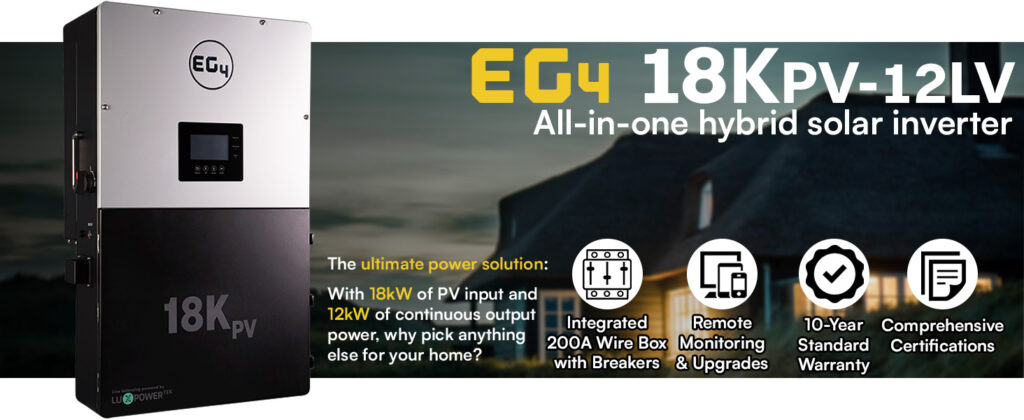Most people think that if they put solar panels on their roof and have them wired into their home’s electrical box they are safe from power outages. This is not true. When the power from the grid goes out, so does your power.
An automatic shut-off switch kills anything coming from your house once it detects the outage.
Why? Because if you are supplying power as a source, you are electrifying the lines from your house back up to the grid. If a line worker is doing maintenance, you’ll electrocute them.
The exception to this is if you have battery backup.
Battery Backup Solutions
While the same switch still gets flipped to cut your panels off from the grid, the batteries then take over powering your home and, if you have solar panels, the batteries will be topped off.
Some folks will forego the solar panels altogether and just use the grid to charge their batteries and keep them ready for a blackout. Other folks who are more aggressive about cost savings will charge their batteries when it is cheapest (12am to 5am) and then use battery power when grid power is the most expensive (5pm- 11pm, typically).
My electricity company, Green Mountain Energy, does free electricity every night from 8pm to 6am, so if you were on the same plan, charge your battery at that time and then discharge during the day when the cost isn’t free. That’s kind of incredible!

Pairing batteries with solar panels is smart because after the storm has passed but before the lines are repaired you can continuously replenish the power that you used.
What About Gas Generators?
Gas generators are a great emergency backup for a lot of people. Powered by liquid natural gas, when an outage is detected, you’ll be switched immediately to generator power, with the same requirements of shut-off switches to protect line workers. Generac is the most recognizable brand in this space.
The problem with them is the PSI to push natural gas is not like water. Your water pressure is something like 160 PSI to keep it flowing. Gas PSI is around 8. If your neighbors have those built-in gas generators as well, then you will notice dips in power generation. If you are at the end of the gas line with others’ generators ahead of yours, you may lose power entirely.
Living in the Houston area, we are now familiar with the engine noise of gas generators. Not only are they noisy, but there is the issue of exhausting fumes from the combustion process. There are sad news stories every hurricane season of people dying from carbon monoxide poisoning due to proximity to gas generators and heaters.
Batteries Compared to Gas Generators
Battery backups are just big batteries, so once they are fully charged there is no exhaust to worry about, no PSI-flow problems, and the only noise is, maybe, a small computer fan inside the battery to keep the computer components cool under pressure, which you won’t hear if it is outside or in the garage.
However, sometimes the storm clouds don’t leave soon enough and the solar panels won’t be able to generate enough energy to replenish the batteries during the blackout. This is why more and more inverter systems come with a port to receive power from a generator. You can actually have the best of all possible worlds with several layers of backup.
As they say in the military: “Two is one and one is none.”

